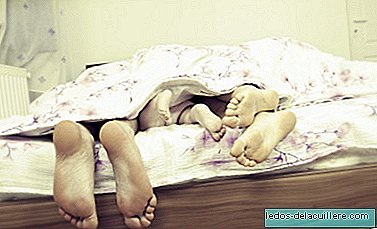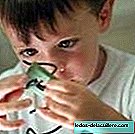
Restless Legs Syndrome (also known as Willis-Ekbom disease) is a disorder of neurological origin, in which annoying sensations occur in the extremities (mainly the legs) during rest, when sitting or lying down. These discomforts (described as shaking, itching, tingling, heat, burning, pain, punctures ...) are reduced by voluntary movement of the affected area.
It mainly affects adults from 40 years of age, but also children and pregnant women at the end of pregnancy. If you suffer or have had restless legs syndrome, there is a risk that your children will inherit it: it is what is known as family restless legs syndrome.
Sleep problems are not uncommon for children under five years of age and sometimes restless legs syndrome appears as a cause, whether or not inherited.
As the relief of restless legs occurs with movement, it interrupts the sleep of people who suffer from it (they have to get up, incorporate, walk ...). That is, the symptoms associated with the syndrome can cause difficulty in starting and maintaining sleep, with continuous interruptions.
In other words, restless legs syndrome is an important cause of insomnia in patients of all ages, greatly affecting their quality of life (drowsiness, depression, anxiety ...). According to the Sleep Institute, this disorder occurs in 2-3% of the population, a figure that increases up to 5% the Spanish Association of Restless Legs Syndrome (AESPI). In general it is admitted that it is underdiagnosed.

Causes of Restless Legs Syndrome
Although the causes of restless legs syndrome (SPI) are not known with certainty, most of the research findings suggest a disorder in the functioning of dopamine, a substance present in the nervous system that regulates movement. In turn, dopamine requires iron to function properly.
Therefore, blood tests are usually used to make an adequate diagnosis, since it has been proven that in patients with SPI there is a malfunction of iron or decreased deposits (ferritin levels). Very often, in addition, there are close relatives affected, which is known as family restless legs syndrome.
Researchers are currently analyzing possible genetic causes that may be responsible for this form of restless legs syndrome and there is still no definitive answer.
Sleep disorders are one of the main consequences of suffering from Restless Legs Syndrome, so maintaining good sleep habits is essential for patients suffering from this syndrome. Regarding babies and children, although there are no magical methods, there are certain recommendations for sweet dreams and that children do not sleep altered to achieve a good rest ...
Finally, remember that restless legs syndrome It is a nuisance that some women suffer in the third trimester of pregnancy (it is estimated that they are 20% pregnant) and that it may come back after childbirth, which translates into increased sleeping difficulties and a great tiredness.
Definitely, if you suspect that your child has restless legs syndrome (as if we suspect it of ourselves) it is best to go to the doctor or a specialized center to be properly evaluated. Once the intensity of the symptoms has been determined and if the diagnosis is confirmed, certain treatments, both pharmacological and non-pharmacological, may be used.












